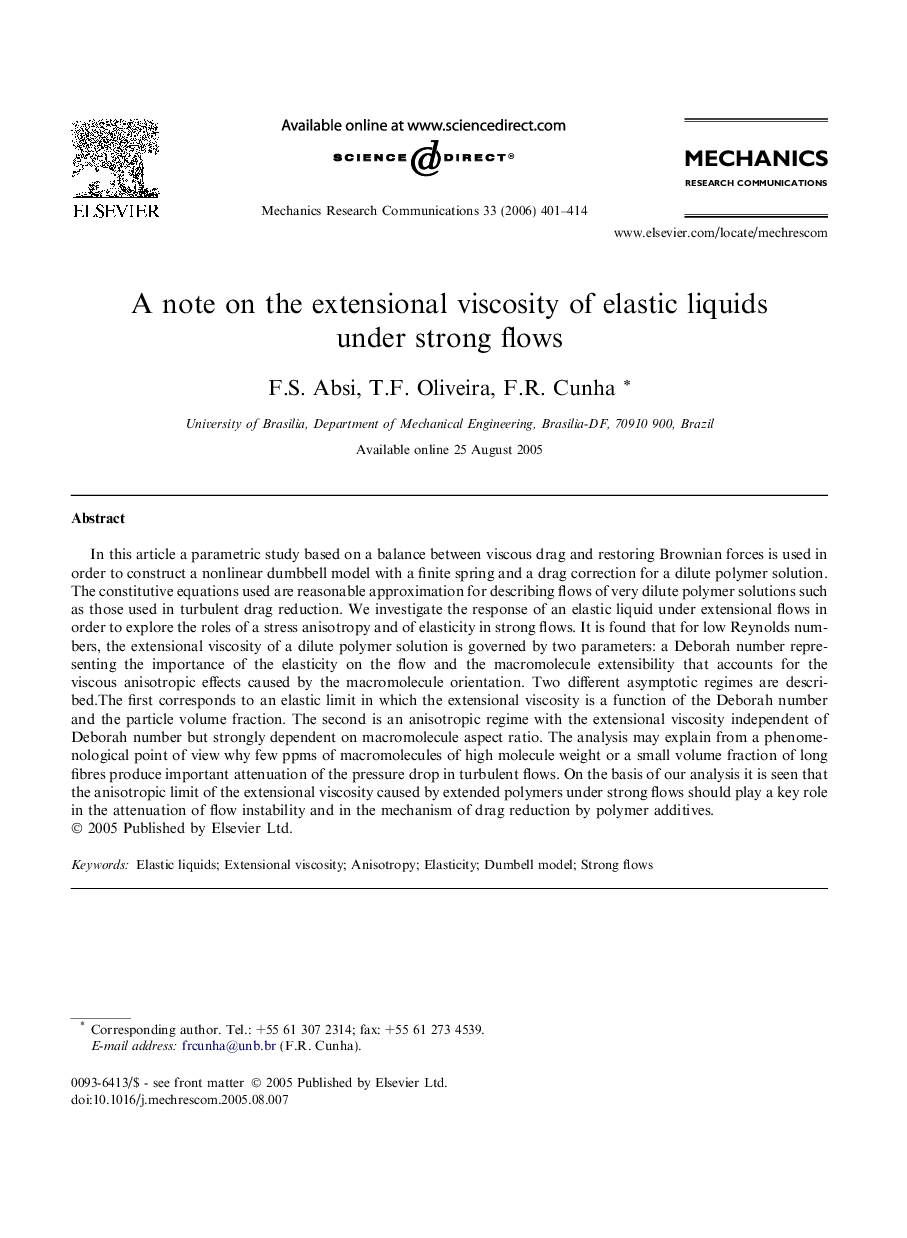| Article ID | Journal | Published Year | Pages | File Type |
|---|---|---|---|---|
| 802054 | Mechanics Research Communications | 2006 | 14 Pages |
In this article a parametric study based on a balance between viscous drag and restoring Brownian forces is used in order to construct a nonlinear dumbbell model with a finite spring and a drag correction for a dilute polymer solution. The constitutive equations used are reasonable approximation for describing flows of very dilute polymer solutions such as those used in turbulent drag reduction. We investigate the response of an elastic liquid under extensional flows in order to explore the roles of a stress anisotropy and of elasticity in strong flows. It is found that for low Reynolds numbers, the extensional viscosity of a dilute polymer solution is governed by two parameters: a Deborah number representing the importance of the elasticity on the flow and the macromolecule extensibility that accounts for the viscous anisotropic effects caused by the macromolecule orientation. Two different asymptotic regimes are described.The first corresponds to an elastic limit in which the extensional viscosity is a function of the Deborah number and the particle volume fraction. The second is an anisotropic regime with the extensional viscosity independent of Deborah number but strongly dependent on macromolecule aspect ratio. The analysis may explain from a phenomenological point of view why few ppms of macromolecules of high molecule weight or a small volume fraction of long fibres produce important attenuation of the pressure drop in turbulent flows. On the basis of our analysis it is seen that the anisotropic limit of the extensional viscosity caused by extended polymers under strong flows should play a key role in the attenuation of flow instability and in the mechanism of drag reduction by polymer additives.
